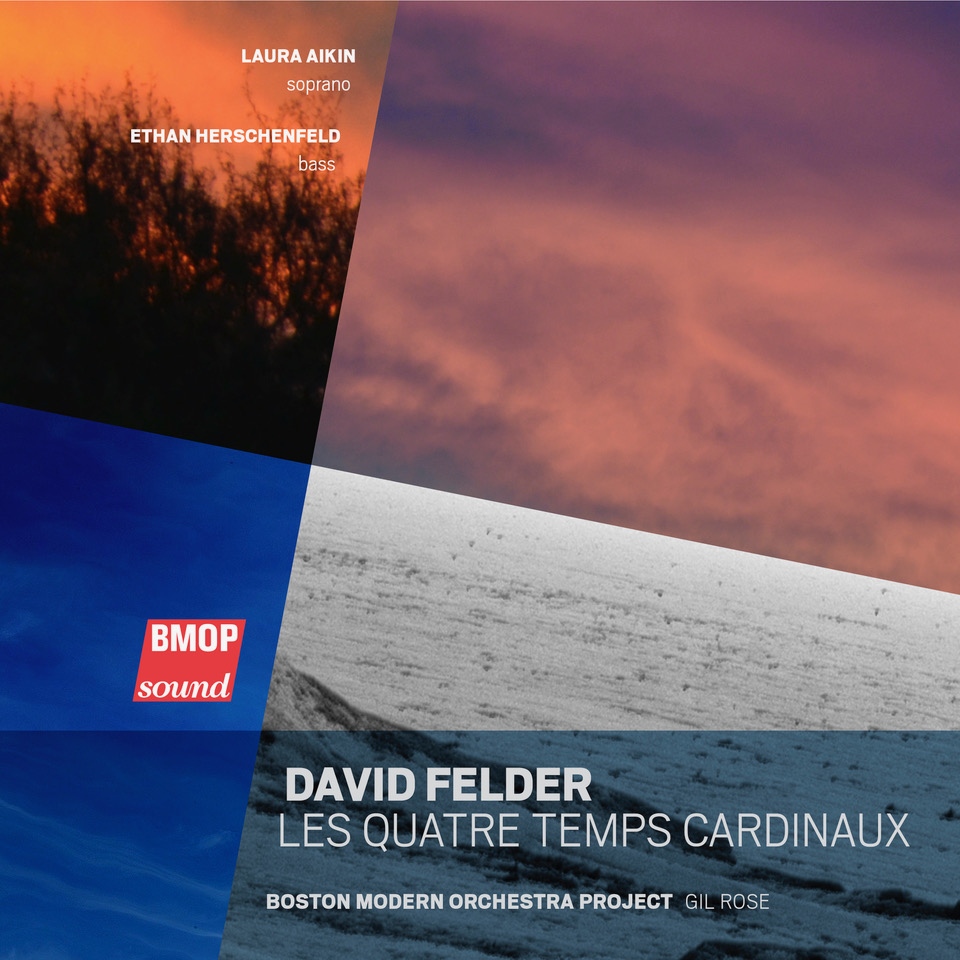- Les Quatre Temps Cardinaux
: Review
David Felder (b. 1953) has been a force in his field—both as a composer (more below) and an administrator/advocate for new music. In the latter role, he has taught almost his entire professional life at the SUNY Buffalo (taking over the position vacated by Morton Feldman’s death), and has directed the influential summer program June In Buffalo, which has been a “destination” for emerging composers now for decades.
Felder came from U. of California San Diego, having studied with Roger Reynolds. I’ve always thought of the place as a sort of “IRCAM on the Pacific,” with its emphasis on a combination of high technology with Modernist (and often more European-influenced) aesthetics. And Felder early on established a reputation as a leading composer in his generation of electroacoustic music. I’ve always felt his works in this vein never overindulged in the “bells and whistles” temptation that causes many composers to demonstrate their technical proficiency at the expense of direct expression.
But all these positive impressions still didn’t prepare me for this work, which is a true summa, a life-statement that shows stunning ambition and imagination. At its core is a poem by René Daumal (1908–1944) (same as the piece’s title), which the composer splits up and distributes in separate movements throughout the piece. The work is for soprano, bass, orchestra, and electronic sounds. Obviously there are progenitors here—one thinks immediately of Das Lied von der Erde (and that connection is made explicit in the final Postlude), and Boulez’s Pli Selon Pli. And while you may doubt me, this piece often rises to a level of inspiration to challenge these models.
From the very outset, it strikes as music on fire. The Prelude begins with a recorded track of the narrated poem, quickly overtaken by music that is clearly based on gestures taken from the overtone series. The next movement (using the same text) builds to an enormous climax of overlapping, slowly ascending lines. It’s as though a great space is being opened up for exploration.
From this point the Daumal alternates with poems by (Northern and Southern) American poets Robert Creeley, Pablo Neruda, and Dana Gioia. Overall, the Daumal music is more visionary, expansive, “rhetorical.” The other poets tend to get a more intimate treatment (often with the poem first being delivered in a recording of actual poets reading—Creeley and Gioia), except Neruda, whose setting for soprano reaches a level of extraordinary passion and intensity (and a high E!).
The electronic part is subtle and integral. At times it takes speech fragments and arranges them into percussive textures, like ice crystals sparkling. At others, it enlarges the sonorous/timbral space of the music, as an exponential enhancement of the acoustic ensemble that is so fluidly blended that you don’t notice it—unless it were removed.
I hope it doesn’t seem to diminish my admiration to say—as a composer—that the only thing I wonder about a bit is the relation of the Daumal texts to the others over the large arc of the piece. I tried listening to these two “threads” separately, and each was a quite satisfying experience: The first as a powerful single setting, the other as a tight cycle. As it stands, I can’t help but feel the intertwining results in a slight descent of energy through the entire work. But Paul Griffiths, in his excellent and comprehensive notes, makes a very strong case for the dense and compelling web of connections between the parts, and I’m more than willing to give it more listenings to see if my opinion changes.
None of that takes away from my feeling that this is truly a major work. It’s stunningly performed by all. Felder has always been a presence in the field, but I feel this release elevates him to a new level of visibility and prominence. This one will be on my Want List.
Robert Carl
This article originally appeared in Issue 43:6 (July/Aug 2020) of Fanfare Magazine.
FELDER Les quatre temps cardinaux • Gil Rose, cond; Laura Aikin (sop); Ethan Herschenfeld (bs); Boston Modern O Project • BMOP 1069 (SACD: 48:52)
